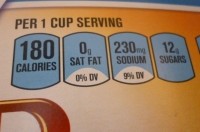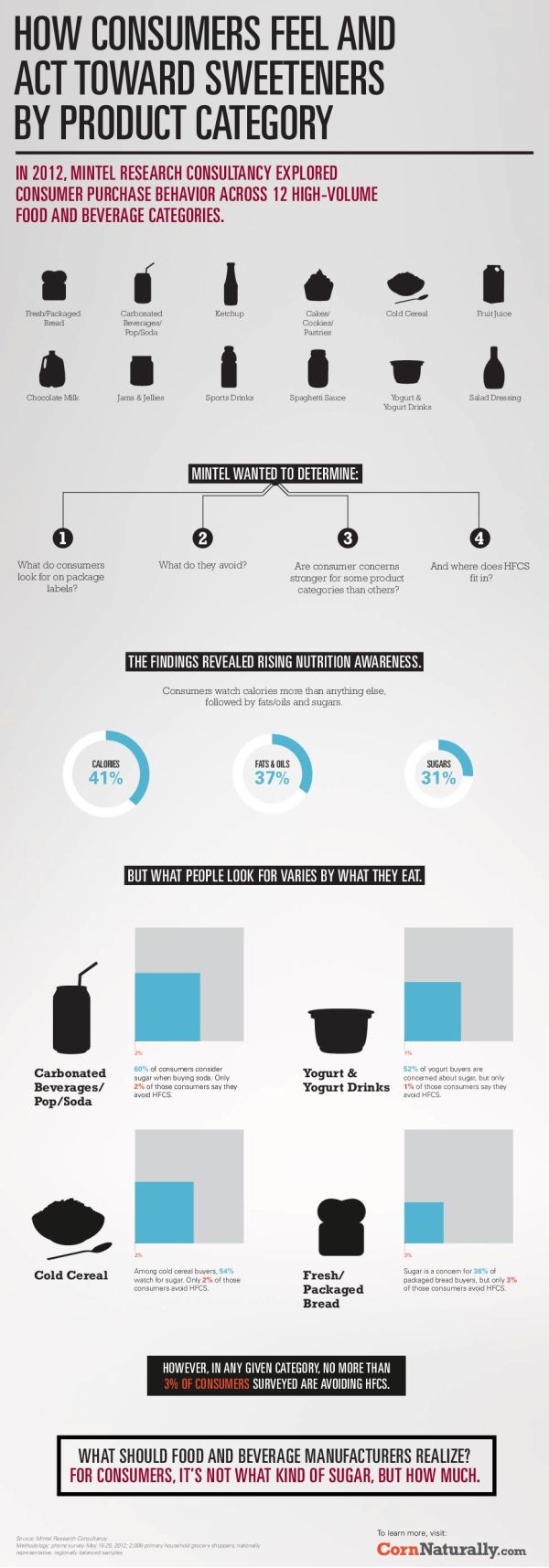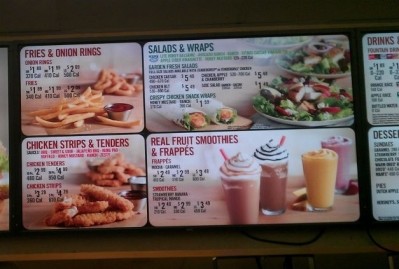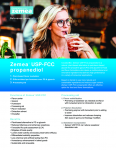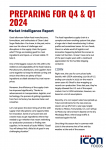Mintel Research: Shoppers are more concerned about how much sugar they are eating than whether it is from HFCS or sucrose

It was published as concerns about sugar intakes hit the headlines again following the publication of a study claiming sugar consumption may have a ‘direct and independent’ link to the risk of developing diabetes.
(Click here for more details about this study, which was immediately challenged by the American Beverage Association.)
Concerns about sugar levels highest in fizzy drinks, cold cereals, fruit juice and yogurt
In the Mintel phone survey of 2,008 US primary household grocery shoppers commissioned by the Corn Refiners Association (CRA) in 2012, 60% of respondents said they "considered sugars or other sweeteners" when buying carbonated beverages; 56% when buying fruit juice; 54% when buying cold cereal; and 52% when buying yogurts and yogurt drinks.
45% said they considered sugars or other sweeteners when buying jams an jellies; 43% when buying cakes/cookies/pastries; 42% when buying sports drinks; 36% when buying packaged bread; 35% when buying salad dressings, 29% when buying chocolate milk; 24% when buying pasta sauce; and 21% when buying ketchup.
However, when people that said they did think about sugars or sweeteners when shopping these categories were asked an open (unaided) question about why they considered sugar/sweetener content, only a fraction said they avoided, disliked, or were concerned about HFCS.
The question was unprompted, so respondents were not given a list of possible answers to select. Instead, they were asked: ‘You said that you consider sugar or other sweeteners when buying… Please tell us why.’
At the bottom of the scale, just 0.7% mentioned HFCS as a concern when buying salad dressings, while 2.7% mentioned HFCS as a concern when buying packaged bread. Every other category fell somewhere inbetween (eg. 1.3% for pasta sauce; 2.2% for carbonated beverages, 1.9% for cold cereals etc).
Given that these figures refer to percentages of people already looking for sugar/sweetener content on labels, the percentage of all shoppers concerned about HFCS is therefore even lower than the 0.7-2.7% range shown in this survey, noted Mintel.
Calories top concern, followed by fats and oils, followed by sugar
When asked what they looked for most on food labels ('When you read labels, what information are you looking for?'), calories were mentioned by the highest percentage of people (41%), followed by fats and oils (37%), then sugar (31%).
However, when it comes to specific ingredients to avoid, recent research suggested that sugars top the list, noted Mintel: "A recent study by Mintel Research showed that consumers are avoiding sugar and added sugar more than any other ingredient."
MSR Group: Survey ‘further helps dispel a myth regarding consumer concern about HFCS’
The survey - which correlates with the finding of previous studies asking unaided questions about food concerns - “further helps dispel a myth regarding consumer concern about HFCS,” claimed Sara Martens, vice president at market researcher The MSR Group.
She added: “This data suggests that manufacturers would realize a stronger sales increase by reducing overall sugar content than reformulating without HFCS.
“Rather than concern about which nutritive sweetener is added to a product, the study shows consumers care more about avoiding total sugars when making food and beverage decisions.”
Unaided questions provide more accurate picture of how concerned shoppers are about HFCS
The data is also a more accurate reflection of genuine consumer concerns than that contained in some other research on this topic because shoppers were asked unaided questions, claimed Martens.
“Studies using unaided questions are more authentic indicators because they document the concerns that are top of mind with consumers rather than prompting them with a term or topic.”

